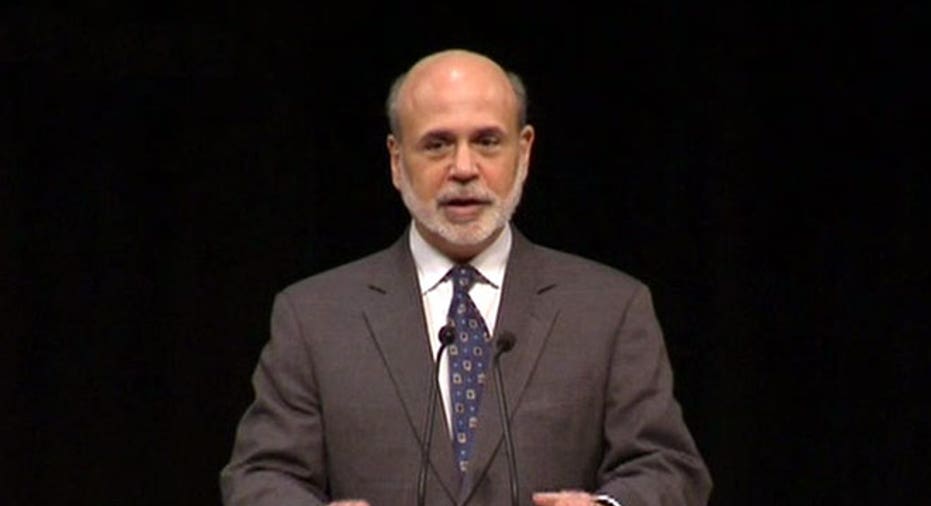Bernanke Goes on Defensive Over QE3

Federal Reserve Chairman Ben Bernanke on Monday defended the Fed’s interventionist strategies, specifically making the case that easing monetary policy will not lead to inflation.
In prepared remarks for a speech in Indianapolis to the Economic Club of Indiana, Bernanke said three rounds of quantitative easing, the latest announced last month, has not and will not push prices higher.
Using a question and answer format (Bernanke asked the questions and then answered them), the Fed chief offered a detailed defense and explanation of the Fed’s actions since the worst of the financial crisis in late 2008.
Within that context, Bernanke posed himself a series of questions he said he is often asked.
One of them was related to inflation: “With monetary policy being so accommodative now, though, it is not unreasonable to ask whether we are sowing the seeds of future inflation. A related question I sometimes hear--which bears also on the relationship between monetary and fiscal policy, is this: By buying securities, are you “monetizing the debt”—printing money for the government to use--and will that inevitably lead to higher inflation?" he asked.
"No, that’s not what is happening, and that will not happen,” Bernanke answered himself.
Bernanke said the Fed’s policy of buying Treasuries (quantitative easing) is being enacted on a temporary basis and only to pursue the broader strategy of lifting the economy by keeping interest rates low.
“At the appropriate time, the Federal Reserve will gradually sell these securities or let them mature, as needed, to return its balance sheet to a more normal size,” he said.
The more important questions with regard to inflation, according to Bernanke, are related to timing. Does the Fed have the proper tools and will it implement those tools at the appropriate time to ensure prices don’t rise too high too fast?
“I’m confident that we have the necessary tools to withdraw policy accommodation when needed, and that we can do so in a way that allows us to shrink our balance sheet in a deliberate and orderly way,” Bernanke said.
Bernanke said one potential tool for tightening monetary policy when the time is right would see the Fed raising the interest rate the central bank pays to private banks on reserve balances those banks deposit at the Fed.
“Because banks will not lend at rates lower than what they can earn at the Fed, such an action should serve to raise rates and tighten credit conditions more generally, preventing any tendency toward overheating in the economy,” he said.
Bernanke also addressed the question of whether the Fed’s policy of long-term low interest rates was hurting savers and investors, notably retirees who live on their savings and investments.
Essentially, the Fed chief said low interest rates, which will remain that way through at least 2015, according to the Fed’s latest projections, are an unavoidable result of the recent financial crisis, and that interest rates are low around the world due to global efforts to jump-start economies badly damaged in the downturn.
Bernanke also spoke to election year concerns that Fed policies can potentially be politically motivated and that the Fed lacks accountability. While acknowledging the concerns, Bernanke basically dismissed both suggestions.
“Research and practical experience have established that freeing the central bank from short-term political pressures leads to better monetary policy because it allows policymakers to focus on what is best for the economy in the longer run, independently of near-term electoral or partisan concerns,” he said. “All of the members of the Federal Open Market Committee take this principle very seriously and strive always to make monetary policy decisions based solely on factual evidence and careful analysis.”



















